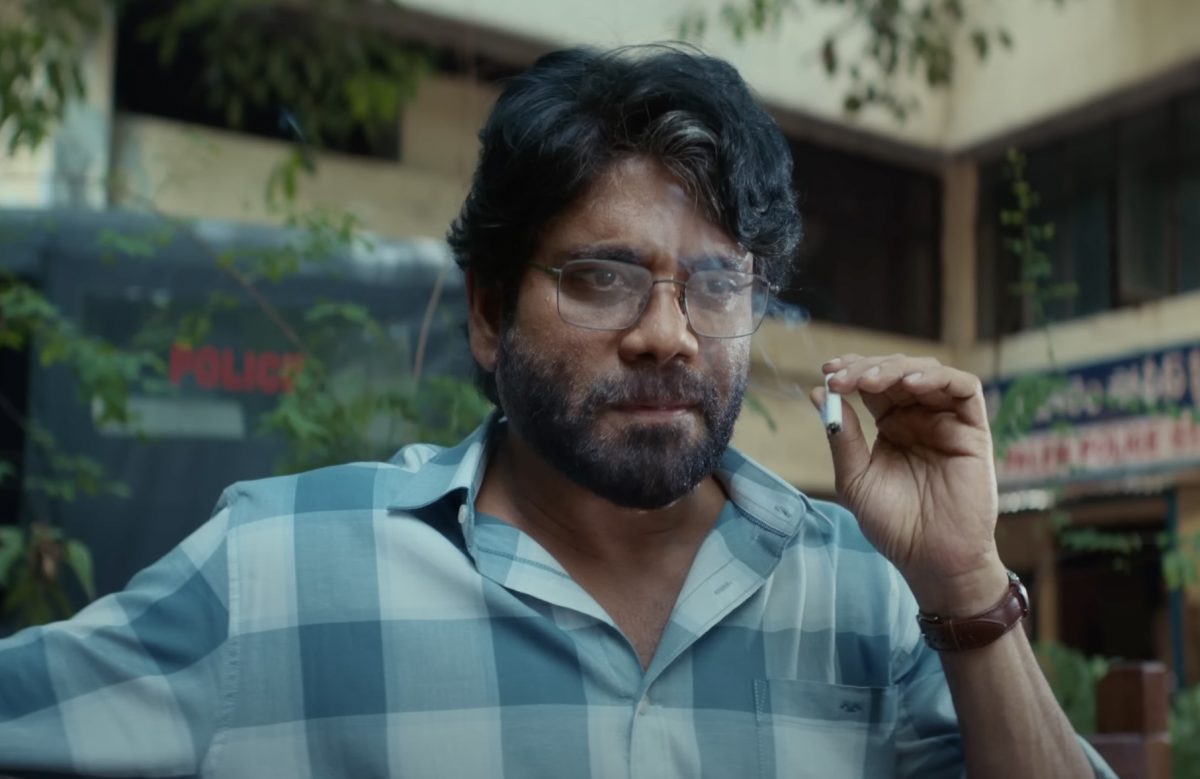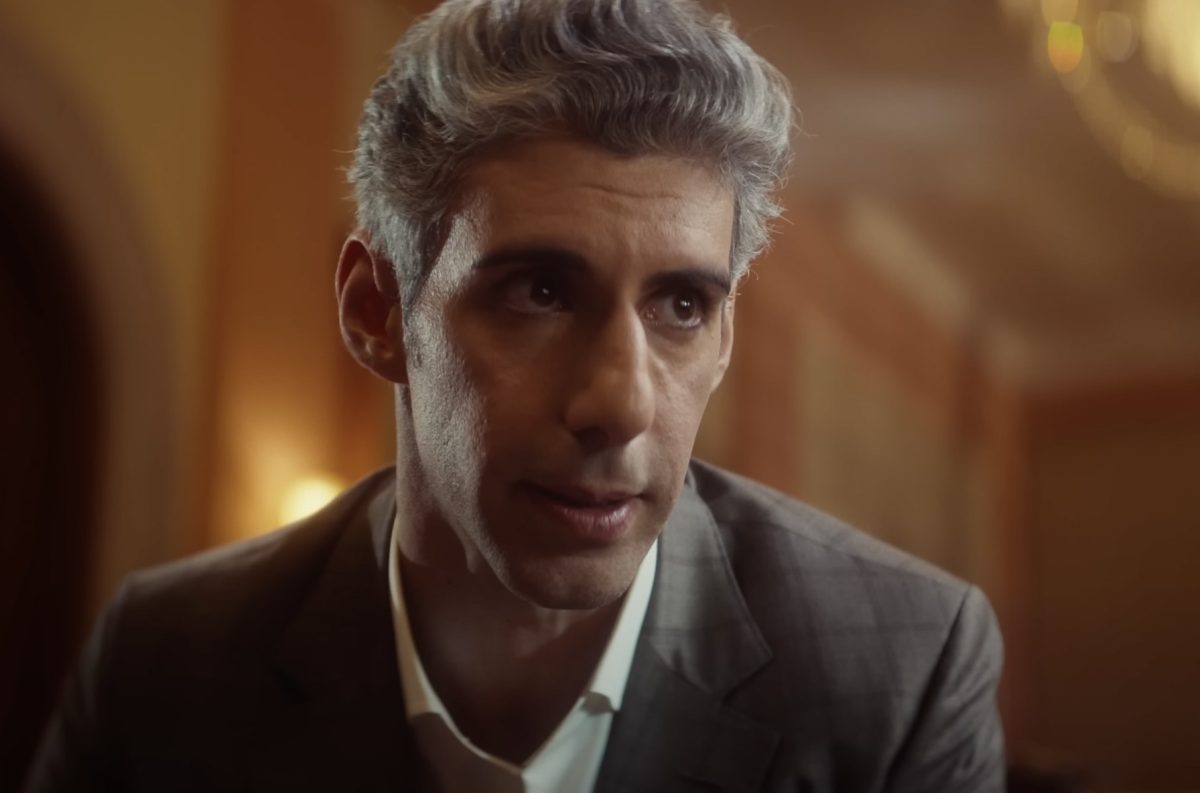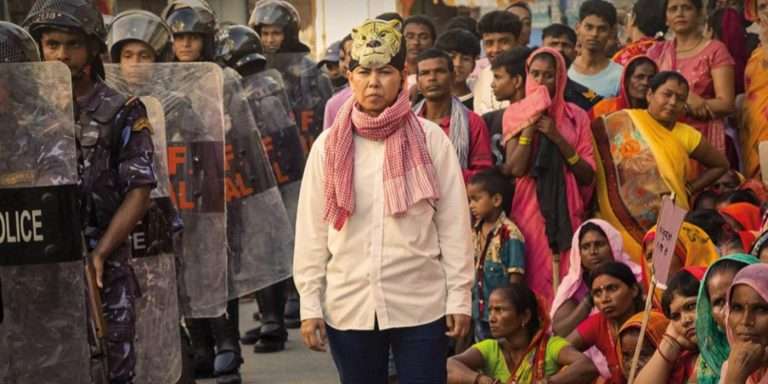Most Indian mainstream dramas tend to lean into over-the-top melodrama. But films that manage to mask their implausibility with convincing performances and emotional truth behind some scenes earn our empathy, and we walk away feeling like we’ve watched a great film. Others, despite having extraordinary stories, sometimes fail to transport those emotions effectively. “Kuberaa” (2025) lands somewhere in the middle.
The story begins with Deepak, a former CBI officer, who is sentenced to a decade in prison for his integrity—an irony at the outset. On the other side is Neeraj (played by Jim Sarbh), a billionaire celebrity with eyes on a newly discovered oil reserve in the Bay of Bengal. To seize control of it and legitimize his black money, Neeraj recruits Deepak to accomplish the task. Deepak, who has long lost faith in the system and has reunited with his family, agrees. What follows is a daring plan to use beggars as straw buyers to funnel the funds. The aftermath of this scheme forms the core of “Kuberaa”.
Dhanush plays Deva, a beggar who was abandoned at a very young age. However, he doesn’t start out as one—instead, he first lives a comfortable middle-class or even upper-class life. This narrative choice adds significant weight to the story, as it allows Deva to convincingly engage in heroic feats, from romancing his girlfriend to taking down henchmen with remarkable strength. For a non-mainstream filmmaker, this would have been a cake walk after having done research and hard work for decades, but for a mainstream filmmaker, it would be hard to merge all the commercial elements along with these non-mainstream-heroic moments.

Director Sekhar Kammula tried to do a good job in putting them in a watchable way. Some early scenes don’t necessarily evoke nostalgia or recall familiar cinematic references—that’s a compliment. Majority of the film, the story feels like reading literature; it builds a quiet, immersive world, largely revolving around three men. Rashmika Mandanna plays Sameera, a character who gets pulled into Deva’s journey by circumstance rather than choice. Her screen presence is notable, though still secondary to the central arc.
Deva’s transition from an innocent survivor in the first half to a calculated strategist in the second feels “a bit” forced. His strategies, especially when he starts manipulating the billionaire over a phone call and vanishes without a trace, whereas the rich man with a lot of henchmen and power, tries hard to locate Deva. These moments, while slightly stylized for a wider audience, still don’t veer into the absurd.
Though the majority of the film does not give references to other films, like the recent mainstream films often overused, there’s a moment that seems to echo “The Revenant (2015)” not just in scale, but in ambition. Much like Iñárritu’s iconic bear attack scene, this one tries to capture the brutality with dogs.
The second half of “Kuberaa” picks up with the same intensity where the first half left off, but gradually shifts gears—from grounded realism to a more commercial tone. Especially in the final act, the film leans noticeably into mainstream territory, like when Deepak (played by Nagarjuna), once a grounded ex-CBI officer and father to a ten-year-old, suddenly becomes a sharp-shooting action hero. Meanwhile, Deva brings down a billionaire with no real consequences and breaks into a dance sequence with background dancers. These choices might be crowd-pleasing, but they also undermine the carefully crafted tone and narrative built in the first hour.
“Kuberaa” offers its cast a perfect stage to showcase their skills. It feels like a playground for performance, and none of the actors disappoint. Neeraj might remind the audience of many corporate villains we have seen so far, yet his version brings something new to an extent.
But Dhanush is the ultimate show stealer. He can completely transform into a character; this is not the first time he has done this. With notable performances in films like “Maryan” (2013), “Aadukalam” (2011), and “Asuran” (2019), “Kuberaa” is poised to earn its place among Dhanush’s most memorable roles. Devi Sri Prasad’s music complements the film well, and the cinematography aligns with the director’s ambitious vision.

However, a few scenes in the second half suffer from noticeable shifts in colour grading, transitioning abruptly from muted and dull to overly bright tones. It was reminiscent of watching films on old cable TVs back in the day, during stormy weather, where the screen’s hues would flicker unpredictably. How did such inconsistencies slip past post-production?
The font used in the title credits felt out of place with the overall craft of the film. It was too obvious in the transition between English and regional languages, which lacked finesse and came across as overly basic and uninspired. Interestingly, the same font style was seen in “Asuran (2019)”, which raises the question: was this a deliberate minimalist choice, a creative oversight, or simply indifference? The latter seems more likely, especially considering there’s even a noticeable error in the subtitles.
The film may test a few audiences’ patience as it runs for 188 minutes, but ultimately, “Kuberaa” is a compelling hybrid part crime drama, part thriller, part commentary on class and power. It may not fully break new ground, but with Dhanush at its centre and Kammula’s steady hand, it delivers a satisfying, sometimes stirring experience that straddles both indie sensitivity and mass-market expectations.




![Mother [2017]: No gob left unsmacked in Jennifer Lawrence’s anxiety dream of horror and dismay](https://79468c92.delivery.rocketcdn.me/wp-content/uploads/2017/09/Mother-2-768x461.jpg)

![The Platform (El hoyo) [2020] Netflix Review – A Fiendishly Entertaining Allegory on Social Inequality](https://79468c92.delivery.rocketcdn.me/wp-content/uploads/2020/03/The-Platform-2020-768x512.jpg)

![Tailgate [2021]: ‘NBFF’ Review – Dutch Thriller Offers Ample Chills If not Novelty](https://79468c92.delivery.rocketcdn.me/wp-content/uploads/2021/07/Tailgate-Review-768x432.jpg)